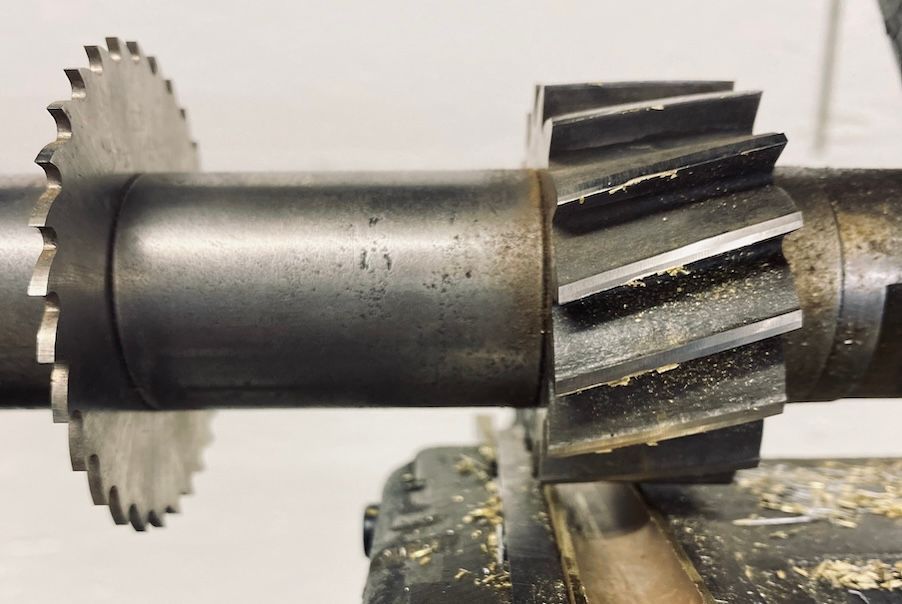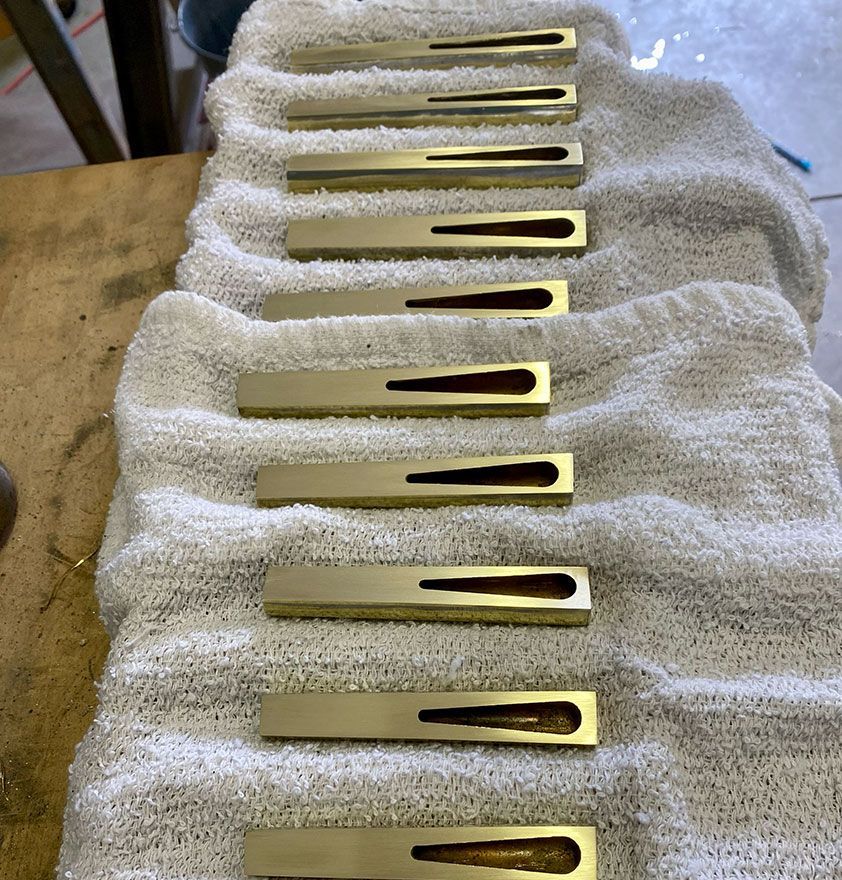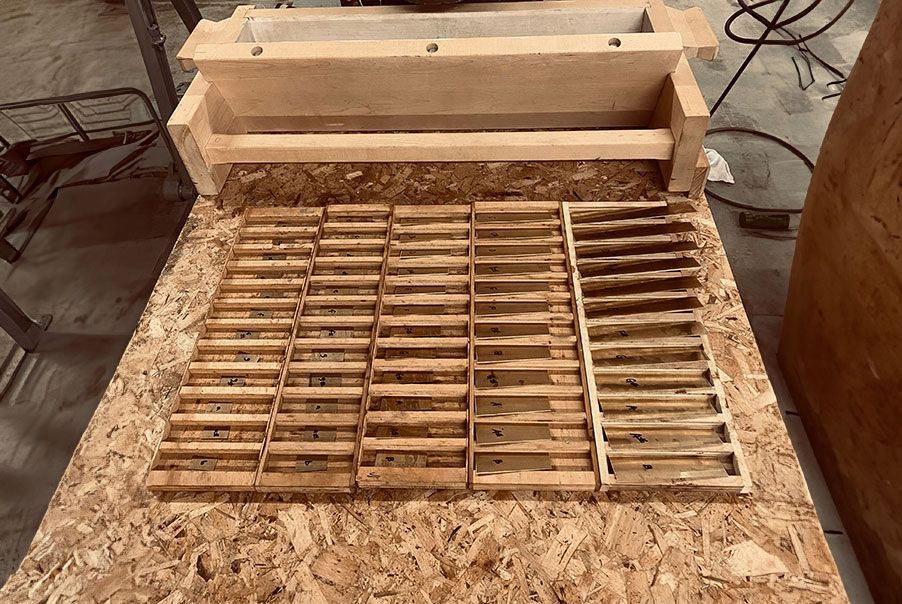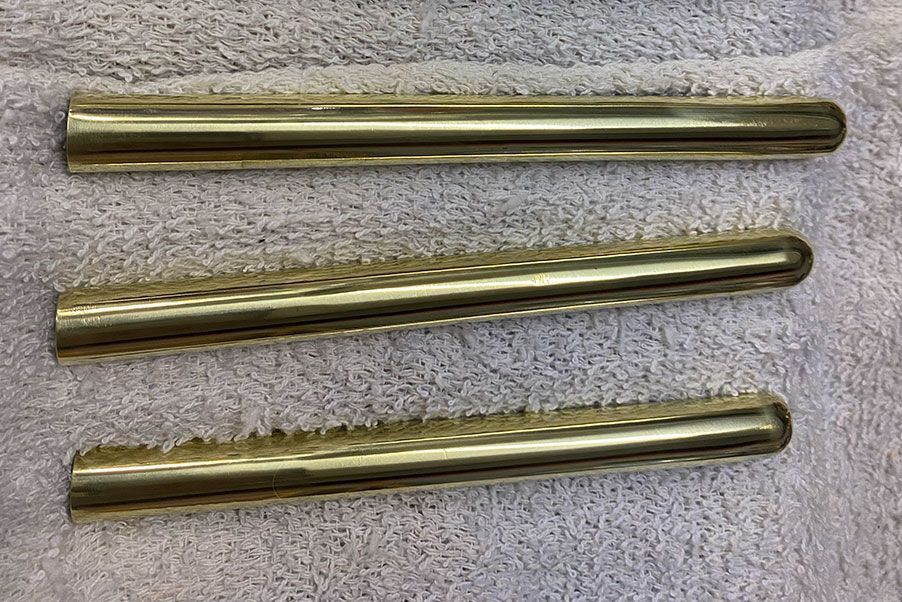Shallots.
Every component plays an important role in shaping the sound and character of a pipe organ.
Shallots, however, stand out as essential contributors to the reeds of the organ's depth of tone, color, and overall performance.

One of several specialized mills used in the shallot-making process.
The unsung hero of the
organbuilding world.
Given their pivotal role in shaping an instrument's sonic landscape, making the highest quality shallots has always been one of Greenleaf’s priorities. We have extended this capability to the organbuilding industry and shallots are now available to buy in a variety of styles: tapered shallots in English and German styles, either ‘cut’ or faced with brass or tin, French (parallel) shallots in capped, ‘billed,’ or Bertounèche styles, and ‘teardrop’ shallots. We also fabricate bespoke and experimental shallot designs, working together with our clients to produce both ‘reproduction’ and entirely new shallots of almost any construction.
For more details or to place an order, please complete the form or email info@greenleaforgans.com.
What are shallots?
Shallots are typically cylindrical or conical, and are most commonly made from brass. They provide one half of the sound-initiating part of a reed pipe, facilitating the production and modulation of reed tone.
What role do shallots play in pipe organs?
Shallots play a multifaceted role in the functioning of a reed pipe, providing resonance, tonal control, articulation, and harmonic development. They work by creating a flat surface (with a carefully designed opening) against which the brass tongue beats.
This mechanism is similar to a reed in an oboe or clarinet, but is designed to remain consistent in timbre (and pitch) when played repeatedly over many years. As with an oboe or clarinet, the sound produced by the beating reed is then amplified and developed by the resonator. The materials, scale, and shape of a shallot dramatically influence the sound that the reed pipe will produce.
The careful crafting of those parameters to suit a specific acoustic and desired timbre or function in the instrument’s specification is as important as the scaling and voicing of flue pipes – perhaps even more so, as there are, generally speaking, far fewer reeds in a given instrument than flues.

'Teardrop’ shallots awaiting a final polish and packing.

Annealed German tin-faced shallots ‘in the flat,’ ready for their initial rounding.
How we manufacture shallots.
Crafting shallots requires a blend of traditional craftsmanship, technological innovation, and acoustic expertise. The manufacturing process starts with annealing brass to meet our own specifications for hardness and the requirements for the shallot style, and ensuring the long-term stability of the brass without compression from the wire or wedge.
We use CNC routing to manufacture ‘blanks,' offering nearly limitless possibilities for ‘faced’ shallots. From there, we use a series of fly and kick presses, along with custom-built shallot forms and milling machines, to produce beautiful shallots conforming to a .1mm tolerance.
Carefully designed and crafted shallots are indispensable to reed pipes, empowering us to realize the full potential of stability and timbral development.
Placing an order.
Please complete the form below. Before production commences for any shallot set, we will send the exact fabrication parameters for approval.
Bespoke shallots:
- Please supply resonator tip diameters and desired shallot type, as well as a description of goals for the timbre, desired style, etc.
Shallots to a specific ‘house style’:
- Please provide as many details as possible, as well as transitional points in terms of taper, opening, etc. This can be given in the form of physical samples or written parameters.

8' Bertounèche shallots in progress.
How and when do I pay?
We request 50% of the cost at the point of order placement and 50% upon notification that the shallots are ready to ship.
How are they delivered?
Usually via UPS or FedEx. When we have the details for your order, we will email you the tracking number.
How long is delivery?
All orders are produced as custom sets to your specifications, so delivery timelines can vary, generally ranging from two weeks to two months.
